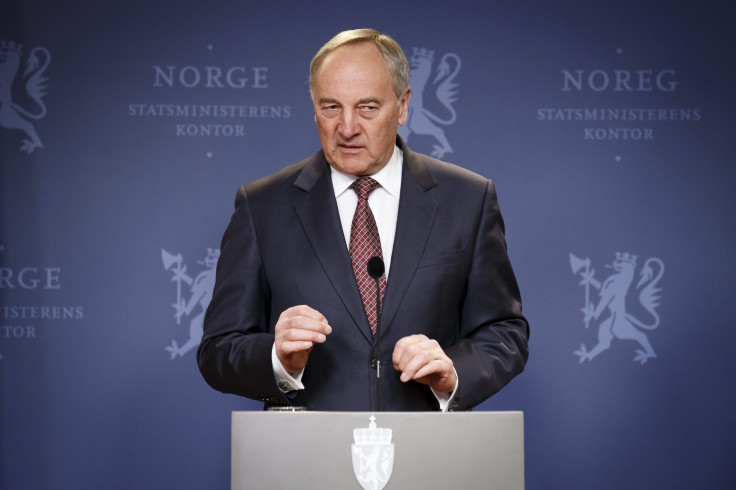Amid Threats, Latvia, Russia Should Develop 'Good Neighborly Relations,' Latvian President Says

Latvia and Russia should maintain a strong diplomatic relationship despite tensions over the Ukraine conflict and Latvia’s association with the NATO alliance, Latvian President Andris Berzins said Thursday. Berzins reiterated that Latvia and Russia “remain good neighbors” just days after a Russian military official said Latvia could one day become a "target."
“The reality is that Russia is our neighbor, and we need to look for ways to develop good neighborly relations between our two countries no matter what,” Berzins told the Latvian Russian-language newspaper Vesti Segodnya, as quoted by Russia’s Sputnik News. He added that they “still remain good neighbors, and that relations with Russians on a personal level did not deteriorate.”
Berzins, who will leave office on July 7, acknowledged that once-strong economic ties between two nations have weakened, but said the Latvian and Russian peoples remain cordial toward each other. “And that is the basis for further development … I remain an optimist in spite of everything,” he said.
Despite Berzins’ optimism, a top Russian official warned Tuesday of military repercussions as Latvia agreed to host elements of NATO’s planned anti-missile shield in Eastern Europe. “[The Baltic states] better think about other things – the deployment of missile defense system elements that are targeting our strategic nuclear forces, that is where their problem is, as they become our targets,” Yevgeny Lukyanov, deputy secretary to the Russian Security Council, told the Russian news service Tass.
Latvia, along with fellow Baltic states Lithuania and Estonia, have strengthened their ties with NATO in recent months amid an increase in Russian military activity in Eastern Europe. Western nations have accused Russia of direct involvement in the eastern Ukraine conflict between Ukrainian government forces and pro-Russian separatist rebels. The Kremlin has recently dedicated vast resources to the modernization of Russia’s armed forces, and the Russian military has conducted military maneuvers in regions as remote as the Arctic.
As concern related to Russia’s military aggression has grown, NATO has taken steps to increase its own military capabilities in Europe. The alliance formed an expanded rapid response force earlier this year and bolstered its military bases in Eastern Europe. Earlier this week, the United States announced plans to station approximately 250 pieces of heavy weaponry, including tanks, in six Eastern European nations. Latvia will host at least some of the equipment.
© Copyright IBTimes 2024. All rights reserved.












